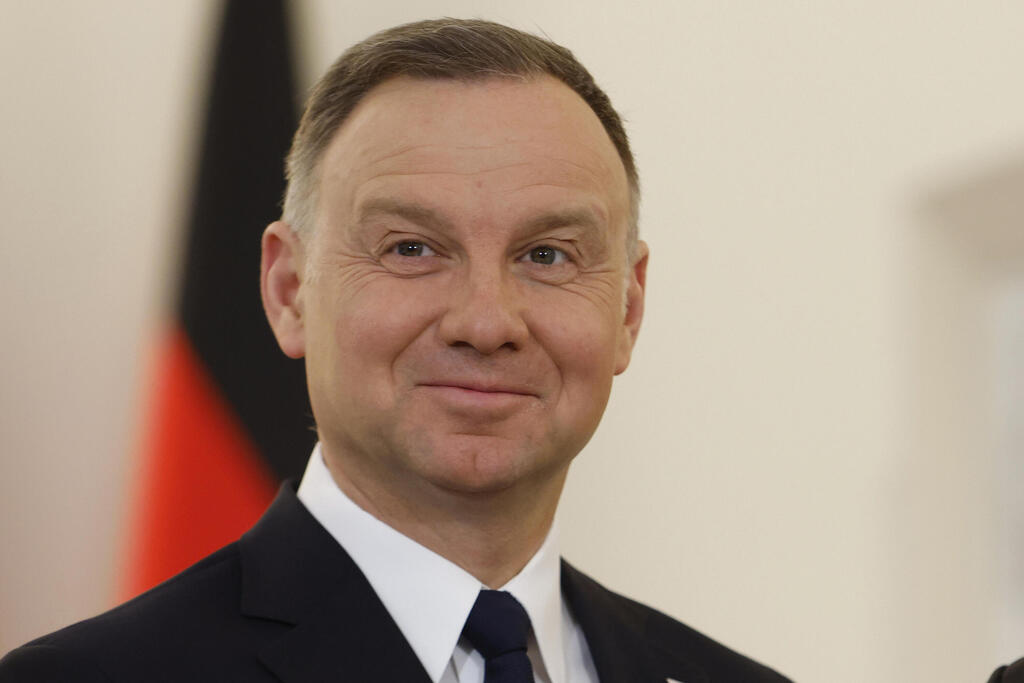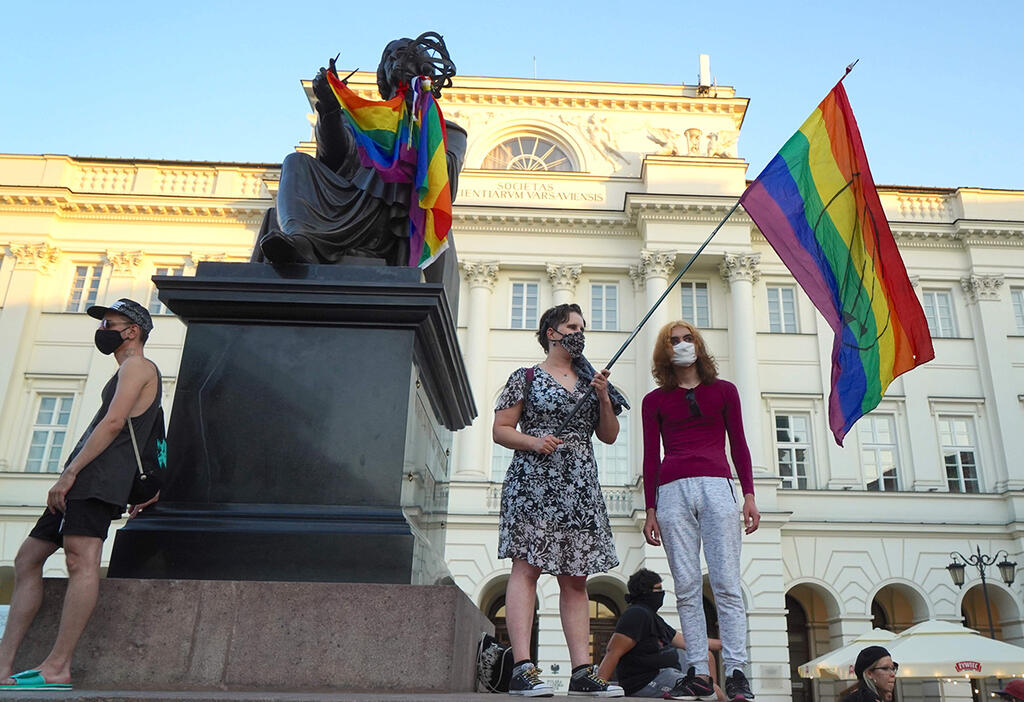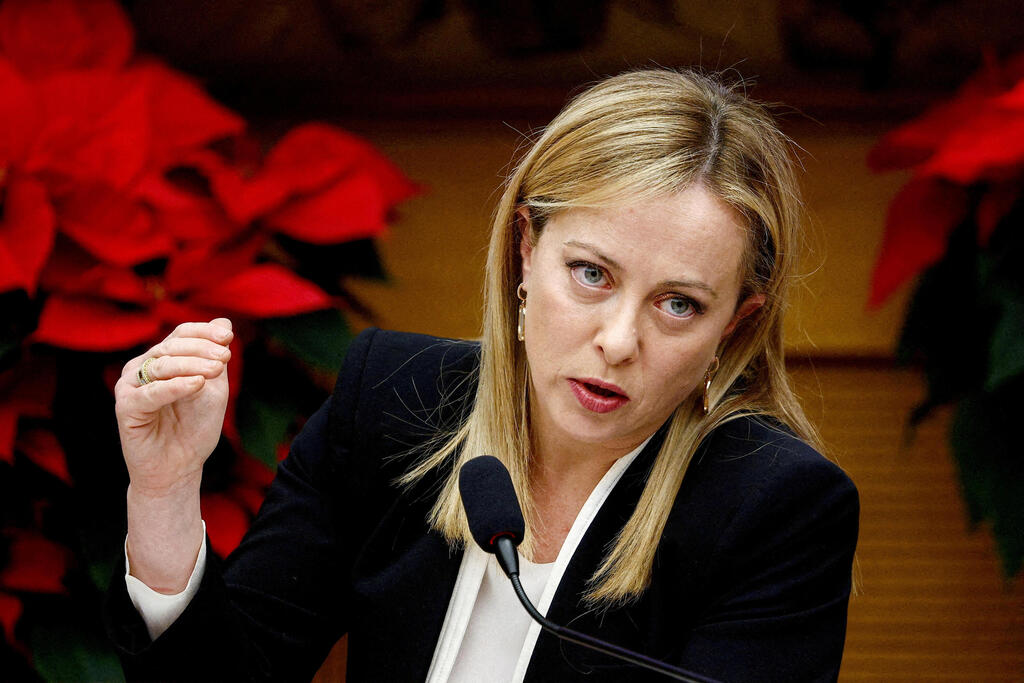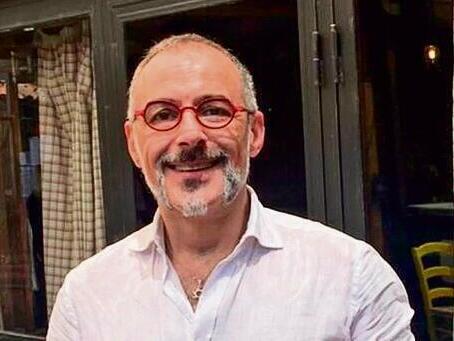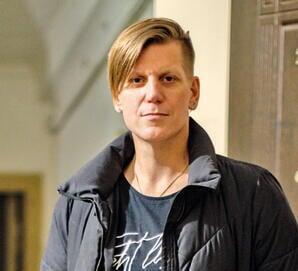Europe is changing: Countries that were once considered bastions of freedom are now grappling with politicians and publics that are becoming increasingly extremist.
Read more:
In Germany, for example, the leader of the conservative Christian Democratic Union party, Friedrich Merz, recently announced that he would consider cooperating with the Alternative for Germany party, thereby lifting a ban on far-right parties for the first time since the end of the Nazi era.
8 View gallery
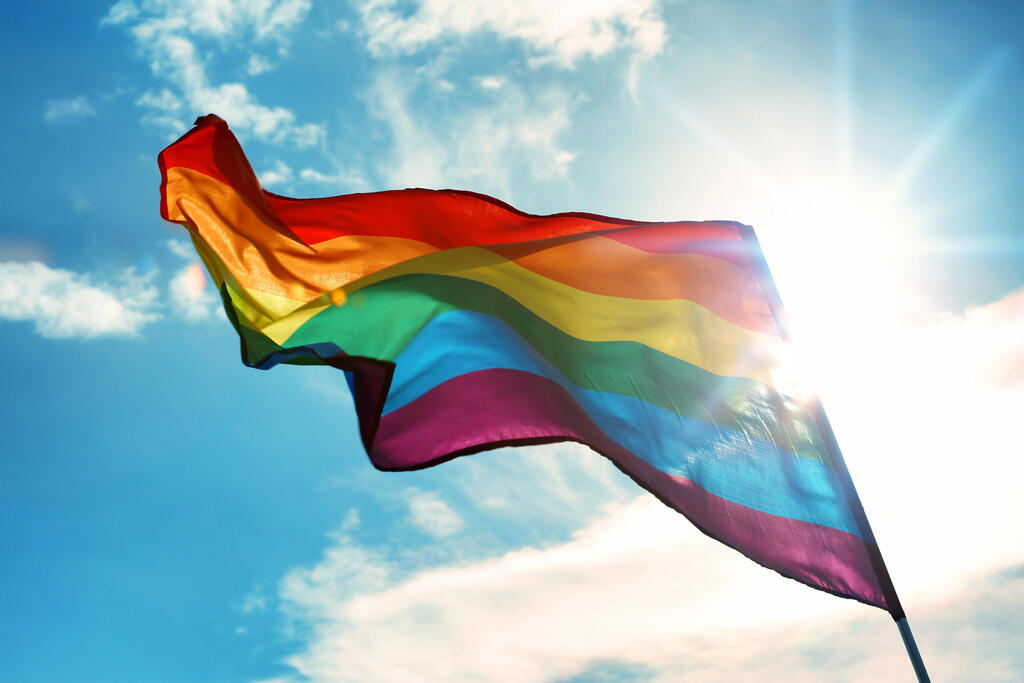

Right-wing governments in Europe are increasingly marking LGBTQ+ communities as national enemies
(Photo: Shutterstock)
In Poland and Hungary, authoritarian regimes have risen to power, enacting “reforms” that infringe upon human rights. The situation in Russia is much more complex, especially since the invasion of Ukraine, and in Italy a government led by the far-right has recently come to power.
Alongside women, Roma people, immigrants and other minorities, those who are affected by these processes the most are members of the LGBTQ+ community. In some places, they suffer from physical violence. In others, they face discrimination in government offices, such as a lack of recognition of parenthood over children, and almost all of them feel the fear of the unknown that the era of extremism holds.
Dr. Floris Roland Baltha is a veterinarian living in Budapest, Hungary. He is very passionate about his profession, but he cannot practice it because he is transgender.
"Trans people are now the primary target of the government," he says. "In 2020, they revoked the recognition of gender changes, and since then we have been required to change documents, including names."
8 View gallery
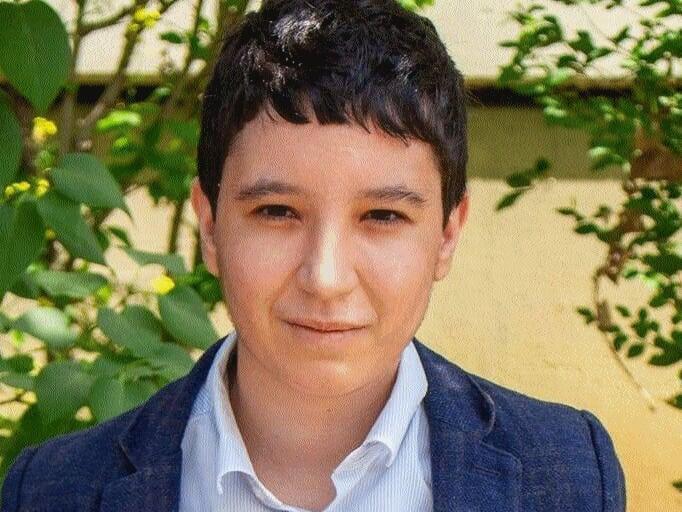

Dr. Floris Roland Baltha cannot practice his profession because he is transgender
(Photo: Szilárd Maron)
He adds that: "According to Hungarian law, a person cannot have a name that does not correspond with their gender, which means that on my official documents, a female name and gender must appear. As a veterinarian, for example, you need to sign with your name. It hurts me that I can't work, as I would be required to do so under a female name. I was forced to switch to other jobs, like programming and teaching."
And is it possible in teaching?
"As a teacher, I had to deal with the propaganda law, which does not allow talking about gender or sexuality with minors. In fact, they were not sure if I was even allowed to teach them at all. The propaganda law is mainly about censorship. For example, two bookstores were fined millions because they sold LGBTQ+ books without wrapping them (in a way that hides the book). These weren't even books on LGBTQ+ topics; they simply had LGBTQ+ characters in them.
When I was a teacher, I had a colleague who wasn't sure if he was allowed to defend an LGBTQ+ student from bullying. I told him that it was his duty, but he was afraid of what would happen if he stood up for the student. The law also affects the media. For instance, they can't report on the Pride Parade in Budapest."
No protection
Hungary is not alone. Poland is undergoing similar processes, as has been reported several times in Israel in recent months, in light of the legal revolution here. Maciek Sendys, 33, is a Polish activist in the liberal European People's Party. He says that the situation of the LGBTQ+ community in his country has been deteriorating for eight years.
"This is happening because of the policies of the Law and Justice Party, which is in power," he says, "even though Polish society has actually become more tolerant. It's a very extreme and homophobic party. The legislation offers us no protection. I can't marry my partner, even abroad, because the government won't recognize it.
"We joke that the government considers us Jews. Once in Poland, the worst person was the Jew. Today, it's the LGBTQ+ individual. This is a corrupt government that has destroyed our legal system, our Constitutional Court, which is roughly what is happening now in Israel. They were looking for an enemy, and they found the LGBTQ+ community. They claim that they are dangerous because they want to destroy the traditional family. The Catholic Church is saying the same thing," Sendys said.
As part of the radicalization, various authorities in southeast Poland, covering about a third of the country, declared in 2020 that they are "LGBT-free zones." In other words, municipalities that do not want members of the LGBTQ+ community within their territory.
"If you live in Warsaw, for example, and you are out of the closet, it's fine," Sendys explains. "In the suburbs, in the east or in the south of Poland, you would live deep in the closet, because the society there is conservative and religious. If I were still living where I grew up, in the center of the country, I would have to live in hiding. In such areas, it is forbidden for people to know that you are gay. You could be fired from your job. Meanwhile, hate speech, especially on social networks, is always on the rise."
What discrimination from the state is there in practice?
"My partner became very ill and was in the hospital for two months. Fortunately, his condition improved, but if he had passed away, I would have had no rights. Even in the case of him being in a coma, I wouldn't have been able to make decisions regarding his care," according to Sendys.
"A few years ago, the justice minister asked the president to cancel the arrest of a man and a woman who assaulted someone carrying a bag with a pride flag. He said their act was appropriate. That man was a member of the Polish neo-Nazi party," he added.
Professor Tomasz Koncewicz is well-acquainted with the situation of the LGBTQ+ community in Poland. As a prosecutor at the European Court of Human Rights in Strasbourg, he represented two Polish women whom the state refused to grant citizenship to their son, despite his clear entitlement.
"This is a case that illustrates the issue of LGBTQ+ individuals in Poland," he explains. "They are not even second-class citizens; they are simply not wanted."
What has happened in Poland in recent years?
“There has been a hostile takeover of the independent institutions. 'If you are not with us, you are against us.' Populists need an enemy. The LGBTQ+ community has become part of this enemy narrative," according to Koncewicz.
"In general, institutions are expected to serve the political agenda of the ruling power. In Poland today, there is no free press, no free expression. It is a mafia state. That is why your fight in Israel for the Supreme Court is so important. Without it, everything will fall apart," he also said.
Lack of awareness
Ariel Heller works for an LGBTQ+ organization in Italy. His struggle is twofold, since he is both LGBTQ+ and Jewish, living under the new government headed by Giorgia Meloni, which is considered radical.
"I just returned from a protest against the surrogacy law," Heller says. "The law would allow the state to imprison for three months to two years couples who choose surrogacy, including heterosexuals, and those who are already raising children. This is an attack on our community. I am afraid that they are adding fuel to the fire," he said.
"A few weeks ago, when I left a party, people shouted at us 'homosexuals, homosexuals,' and I was afraid they would also attack us. But despite this, it is important to note that we are a strong community."
Does the antisemitism intertwine with the hatred toward the LGBTQ+ community?
"At last year's Pride Parade in Milan, we joined with a rainbow flag that had a Star of David on it. On social media, people wrote that 'all this is the fault of the Zionists; they are ruining all the nations of the world.' There are those who hate us not because we are LGBTQ+, and not because we are Jewish, but because we are Jewish LGBTQ+ individuals," according to Heller.
Heller volunteers for Keshet, a Jewish LGBTQ+ organization that operates throughout Europe. The CEO of the organization in Italy, Dr. Meir Brauner, spoke with Ynet along with G., a resident of Rome who is raising a daughter with her partner.
"If there is an accident and, God forbid, something happens to me, the child needs to be with my partner," G. says. According to Italian law, G.'s partner would have to adopt their shared daughter. If the Italian adoption law is nullified – and something happens to G. – the girl will be considered an orphan, even though she has another mother.
"I'm afraid that in such a case they will separate them, and she will be sent to an orphanage," she adds.
Dr. Brauner adds: "We are in the calm before the storm. When I was young, we couldn't say that we were a couple because we were afraid of what the neighbors would say. The young people don't know this; they don't know what we experienced. I am worried that they are not fighting. There are no history books about homosexuals, and they are not being taught about what happened."
Anastasia Biefang is a well-known LGBTQ+ activist in Germany as the first openly transgender officer in her country's army. She too expresses great concern.
"Recently, there was an election opinion poll. The Alternative for Germany party received 22%. Alternative for Germany is not just right-wing - they are extremely far-right. Suddenly, there are statements from politicians that I thought we were already past," she said.
"I have never experienced hatred and shouting, and suddenly it is happening. We have a 15% increase in hatred toward LGBTQ+ people. Last year, a transgender woman was murdered during the Pride parade. In spaces in Berlin that we thought were safe, there is more and more hate speech," Biefang said.
Biefang also fears concrete steps against the community led by the far-right. "Any right that is not enshrined in the constitution can easily be taken away," she explains.
"And Germans have a history. This is happening all over Europe; what happened in Italy is shocking. In any case, we must not ignore this, and we must not say 'trans rights are complex, we need to give it time for people to adjust' – no, there should be no waiting period for people to receive basic human rights."
No future
Of all the countries mentioned here, Russia is probably the worst place for LGBTQ+ individuals. Gleb, 23, from Moscow, says that members of the LGBTQ+ community are completely exposed.
"If something happens to you and you complain to the police – you will be in even bigger trouble," he says. "If you are attacked on the street and complain – it is unlikely that you will go to the police. The officers there are also homophobic and might attack you even more severely."
What has changed since the invasion of Ukraine?
"It has gotten worse and worse, as more and more laws are being passed against LGBTQ+ people. For example, the law against propaganda. The media is prohibited from positively covering the community. This is also true for books and cinema. A woman was fined 200,000 rubles because of a pride flag tattoo. It is forbidden to post pictures with partners on social media, and it is forbidden to express an opinion related to LGBTQ+ matters. This is censorship," Gleb asserts.
8 View gallery
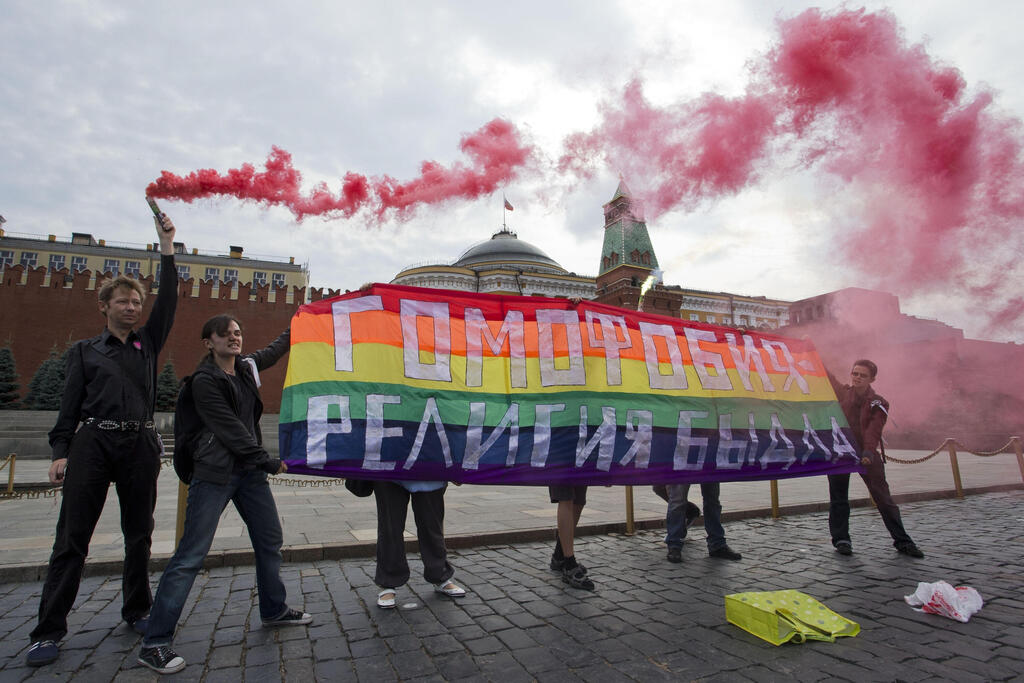

Protest against the LGBTQ+ propaganda law, in Moscow, Russia, 2013
(Photo: AP Photo/Evgeny Feldman)
"The original 2014 law was against LGBTQ+ propaganda among minors. If you were publicly displaying a pride flag and a minor saw you – it was considered LGBTQ+ propaganda targeting minors. Now they have passed a law that applies to everyone. They have also recently passed a law that prohibits gender-affirming treatments for transgender people: no surgeries, no hormones," he adds.
How are you coping?
"The laws in Russia work in mysterious ways. They can pass a law but use it selectively against specific individuals who pose a threat to the government.
"On my Instagram page, you can see posts of me wearing dresses. There is a chance I could get into trouble for this, but it seems I am not of interest to anyone. I once wore heels and makeup on a bus after a party, and a guy tried to hit me. People have also shouted 'homo' at me on the street a few times," he said.
Are you thinking of escaping?
"Since the war, I think about it every day. Unfortunately, I am not someone who ventures into the unknown. Making a living in other countries is very difficult, not only for LGBTQ+ people. But most of my friends have already left Russia.
"Month after month, life for the LGBTQ+ community here becomes more challenging, and I am afraid it will get even worse. Now, they want every government hospital to have a special section for sexologists who will administer 'conversion therapy' to us. It is noted that they can force people to undergo these procedures against their will."


